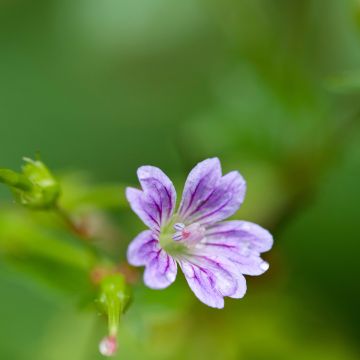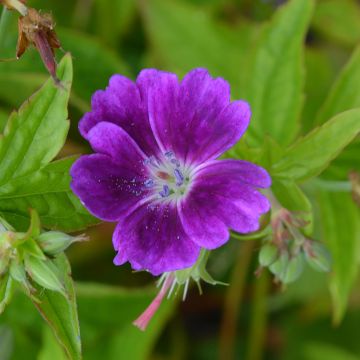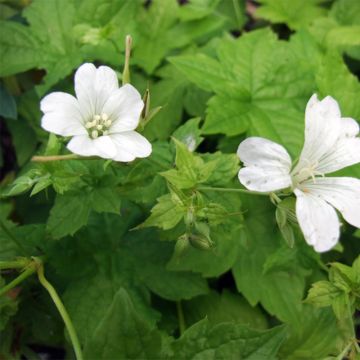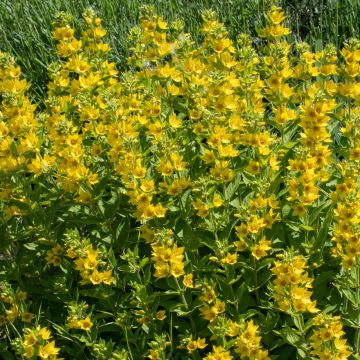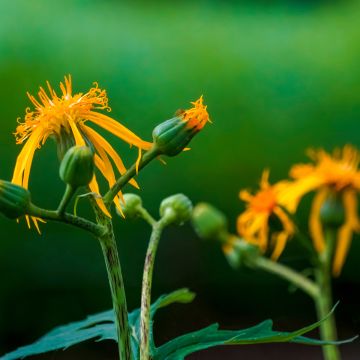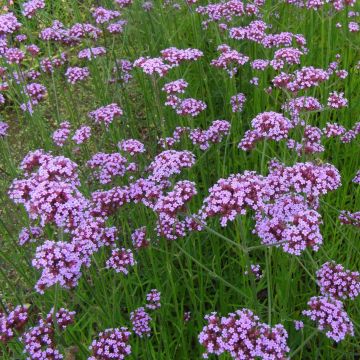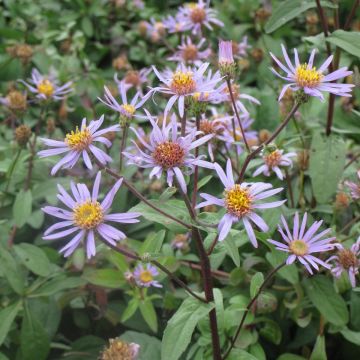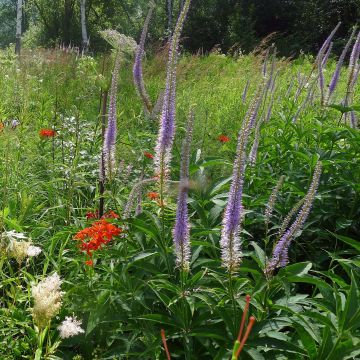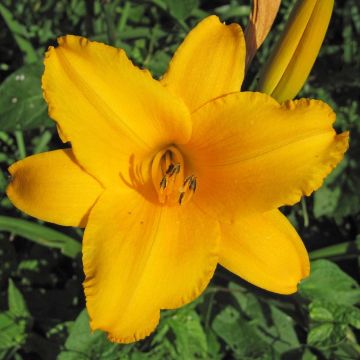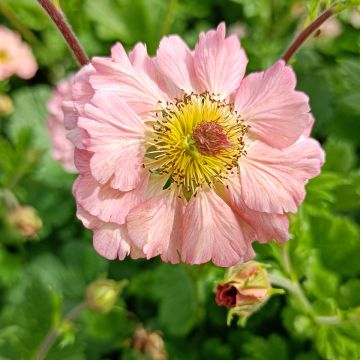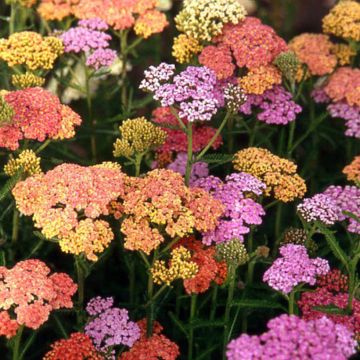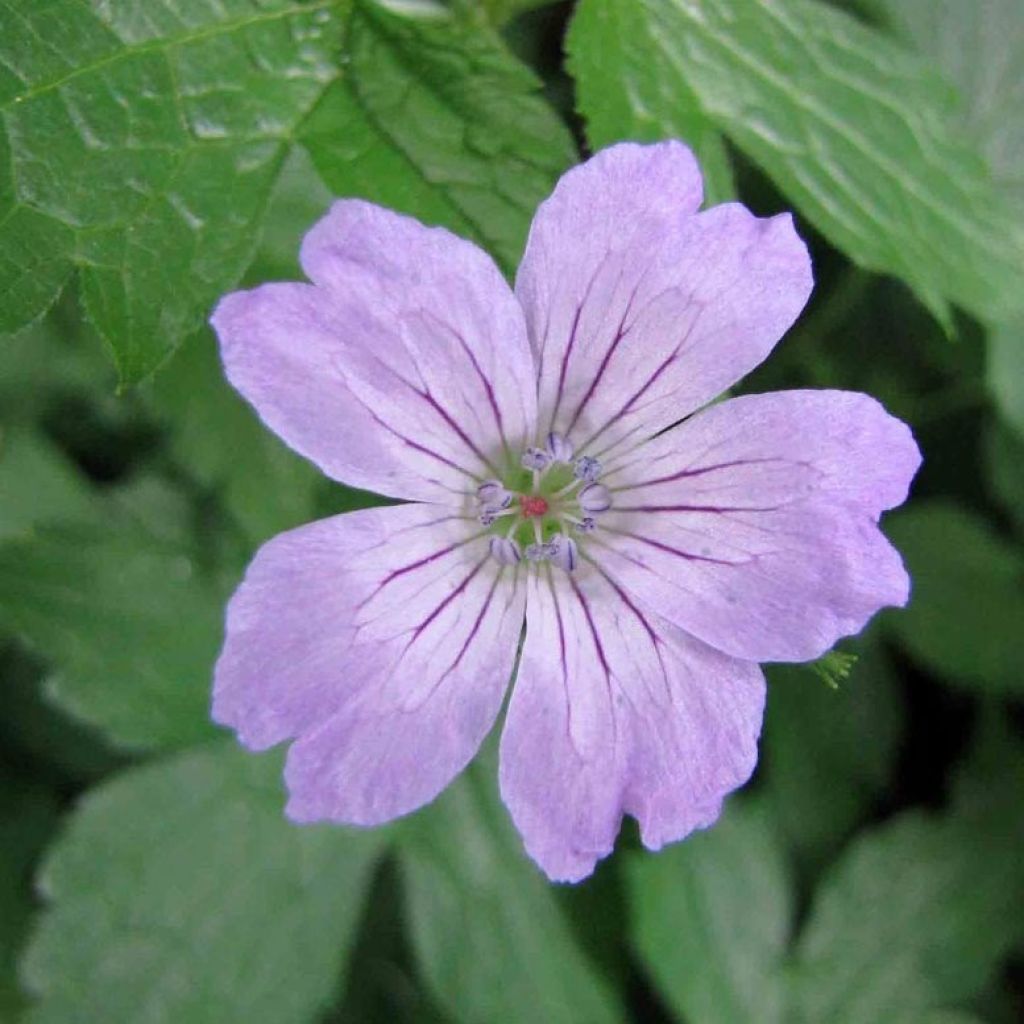

Geranium nodosum Simon
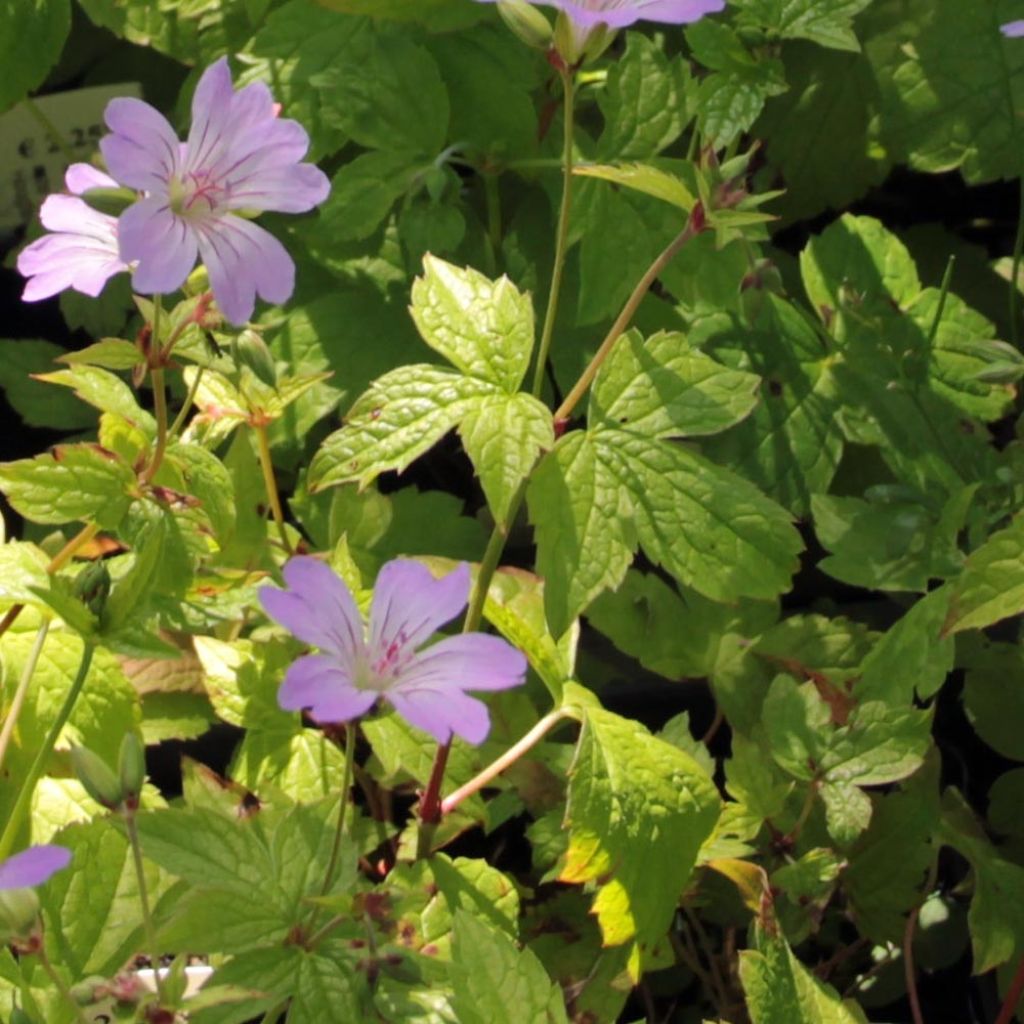

Geranium nodosum Simon
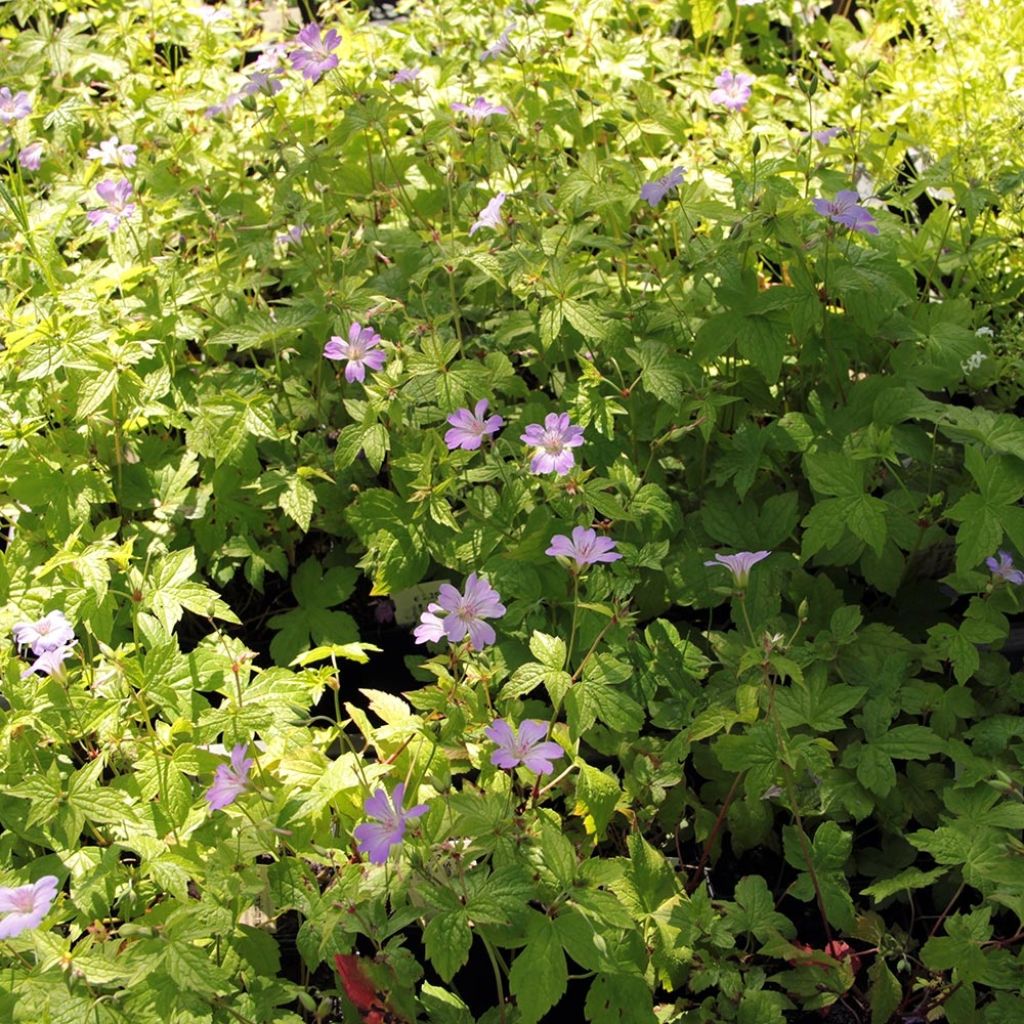

Geranium nodosum Simon
Geranium nodosum Simon
Geranium nodosum Simon
Knotted Crane's-bill, Hardy Geranium
This item cannot be shipped to the selected country
Delivery charge from €5.90
More information
Schedule delivery date,
and select date in basket
This plant carries a 12 months recovery warranty
More information
We guarantee the quality of our plants for a full growing cycle, and will replace at our expense any plant that fails to recover under normal climatic and planting conditions.
From €5.90 for pickup delivery and €6.90 for home delivery
Express home delivery from €8.90.
Does this plant fit my garden?
Set up your Plantfit profile →
Description
The Perennial Geranium nodosum 'Simon', also known as Perennial Nodose Geranium 'Simon', is a good ground cover for dry or wet shade. It offers a long flowering period, from spring to autumn, with open cups of magenta pink. The overall effect is soft and bright, perfect in woodland scenes, welcome in dry or moist soil, between areas of shade and light.
The Perennial Geranium nodosum 'Simon' belongs to the Geraniaceae family. It is a cultivar derived from Geranium nodosum, native to the Pyrenees, Italy, and Yugoslavia. This herbaceous and deciduous perennial, very hardy, forms a 30 cm (12in) tall carpet and spreads thanks to its stolons to a minimum width of 40 cm (16in). Its growth is quite rapid, however, this very beautiful yet rare form develops more slowly than the species. It blooms from late spring to September, with magenta pink flowers in open cups, with petals marked by a notch. The foliage is finely pubescent on the underside, light green and shiny when young, darker later on, deeply cut. The glabrous stems, 20-50 cm (8-20in) long, are strongly swollen at the nodes. This plant with a horizontal, elongated, rather slender stump spreads by underground rhizomes.
This perennial geranium appreciates all shades of the garden, in ordinary, dry or wet soil. Geranium nodosum 'Simon' is an excellent ground cover plant, endowed with great robustness. It will quickly add a colourful touch to exhausted soil under trees, bushes, along facades or north or east-facing alleys, at the base of sunless walls. It will advantageously conceal the base of shade-loving shrubs like Hydrangea quercifolia 'Snow Queen', in the company of Tiarella cordifolia with white flower spikes. This plant is a blessing where few plants are willing to grow, such as Symphytum caucasicum and the large periwinkle.
Report an error about the product description
Geranium nodosum Simon in pictures
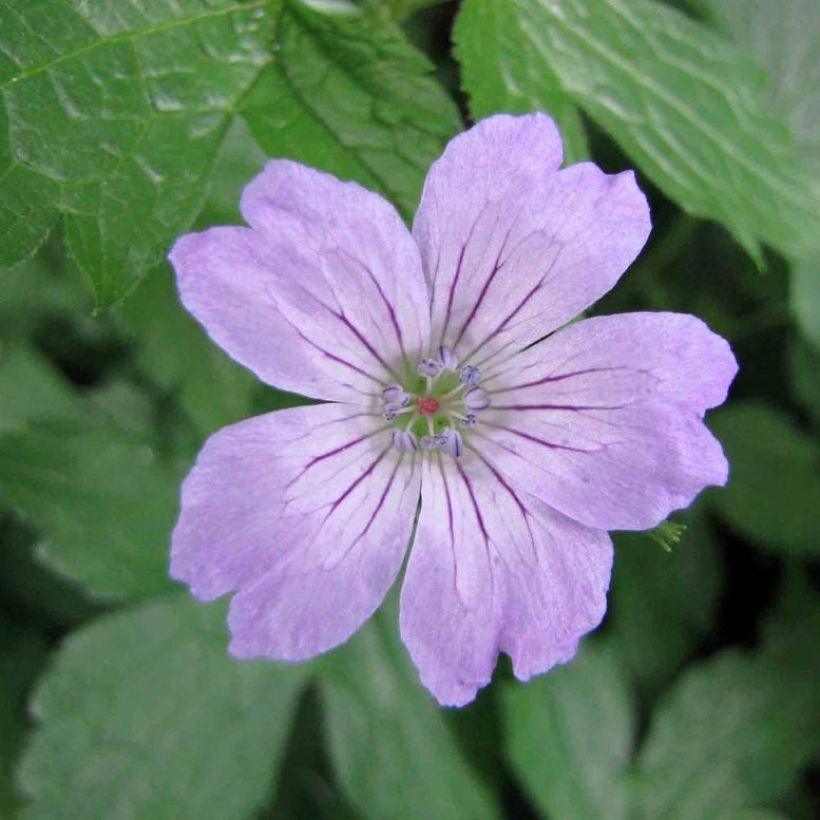

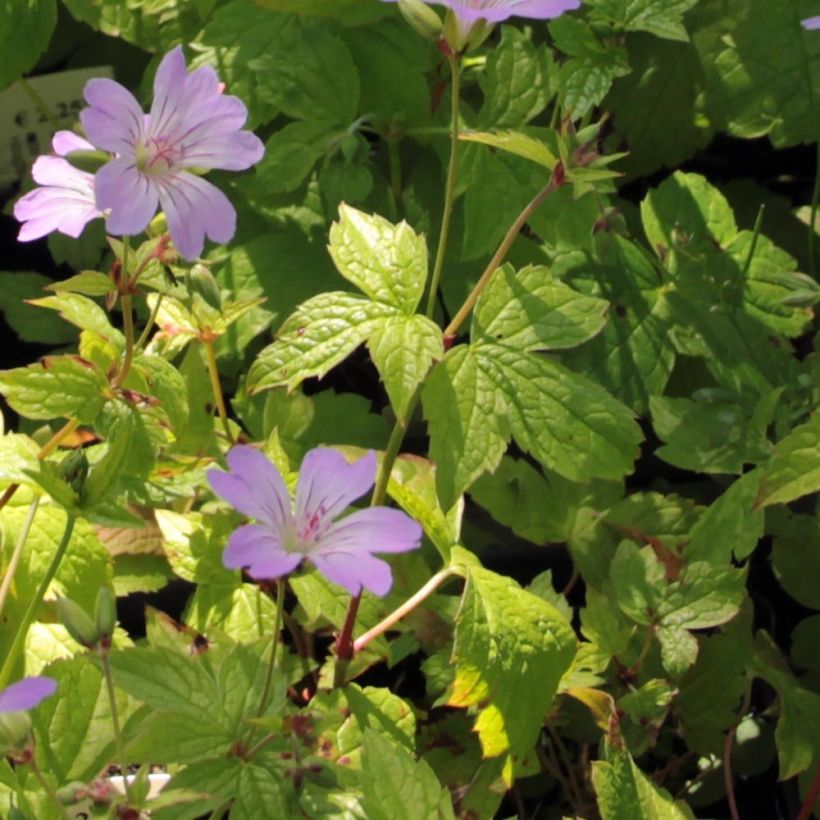

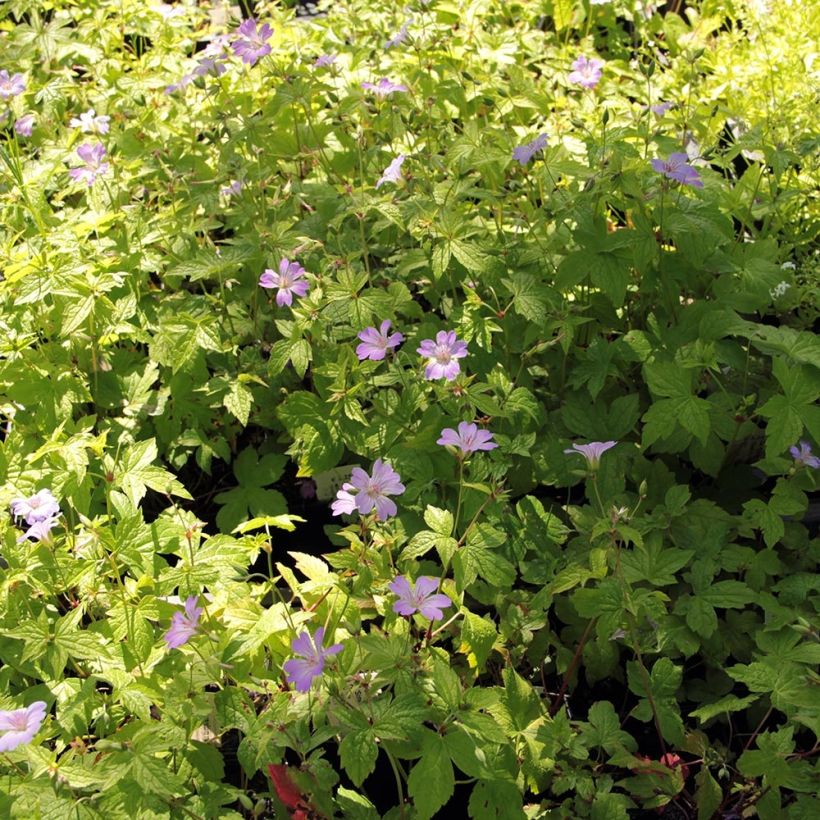

Flowering
Foliage
Plant habit
Botanical data
Geranium
nodosum
Simon
Geraniaceae
Knotted Crane's-bill, Hardy Geranium
Cultivar or hybrid
Other Geranium nodosum
Planting and care
The typical habitat of the Geranium nodosum is the edge of leafy forests, under oak, beech, and chestnut trees. It thrives on limestone and siliceous soils, with a neutral pH, in moderately moist soil. In the garden, it will also adapt to all types of soil and exposures, except for scorching sun. It is not at all afraid of competition from the roots of trees and bushes. This easy-to-care-for plant requires little maintenance.
Planting period
Intended location
Care
-
, onOrder confirmed
Reply from on Promesse de fleurs
Summer flowering perennials
Haven't found what you were looking for?
Hardiness is the lowest winter temperature a plant can endure without suffering serious damage or even dying. However, hardiness is affected by location (a sheltered area, such as a patio), protection (winter cover) and soil type (hardiness is improved by well-drained soil).

Photo Sharing Terms & Conditions
In order to encourage gardeners to interact and share their experiences, Promesse de fleurs offers various media enabling content to be uploaded onto its Site - in particular via the ‘Photo sharing’ module.
The User agrees to refrain from:
- Posting any content that is illegal, prejudicial, insulting, racist, inciteful to hatred, revisionist, contrary to public decency, that infringes on privacy or on the privacy rights of third parties, in particular the publicity rights of persons and goods, intellectual property rights, or the right to privacy.
- Submitting content on behalf of a third party;
- Impersonate the identity of a third party and/or publish any personal information about a third party;
In general, the User undertakes to refrain from any unethical behaviour.
All Content (in particular text, comments, files, images, photos, videos, creative works, etc.), which may be subject to property or intellectual property rights, image or other private rights, shall remain the property of the User, subject to the limited rights granted by the terms of the licence granted by Promesse de fleurs as stated below. Users are at liberty to publish or not to publish such Content on the Site, notably via the ‘Photo Sharing’ facility, and accept that this Content shall be made public and freely accessible, notably on the Internet.
Users further acknowledge, undertake to have ,and guarantee that they hold all necessary rights and permissions to publish such material on the Site, in particular with regard to the legislation in force pertaining to any privacy, property, intellectual property, image, or contractual rights, or rights of any other nature. By publishing such Content on the Site, Users acknowledge accepting full liability as publishers of the Content within the meaning of the law, and grant Promesse de fleurs, free of charge, an inclusive, worldwide licence for the said Content for the entire duration of its publication, including all reproduction, representation, up/downloading, displaying, performing, transmission, and storage rights.
Users also grant permission for their name to be linked to the Content and accept that this link may not always be made available.
By engaging in posting material, Users consent to their Content becoming automatically accessible on the Internet, in particular on other sites and/or blogs and/or web pages of the Promesse de fleurs site, including in particular social pages and the Promesse de fleurs catalogue.
Users may secure the removal of entrusted content free of charge by issuing a simple request via our contact form.
The flowering period indicated on our website applies to countries and regions located in USDA zone 8 (France, the United Kingdom, Ireland, the Netherlands, etc.)
It will vary according to where you live:
- In zones 9 to 10 (Italy, Spain, Greece, etc.), flowering will occur about 2 to 4 weeks earlier.
- In zones 6 to 7 (Germany, Poland, Slovenia, and lower mountainous regions), flowering will be delayed by 2 to 3 weeks.
- In zone 5 (Central Europe, Scandinavia), blooming will be delayed by 3 to 5 weeks.
In temperate climates, pruning of spring-flowering shrubs (forsythia, spireas, etc.) should be done just after flowering.
Pruning of summer-flowering shrubs (Indian Lilac, Perovskia, etc.) can be done in winter or spring.
In cold regions as well as with frost-sensitive plants, avoid pruning too early when severe frosts may still occur.
The planting period indicated on our website applies to countries and regions located in USDA zone 8 (France, United Kingdom, Ireland, Netherlands).
It will vary according to where you live:
- In Mediterranean zones (Marseille, Madrid, Milan, etc.), autumn and winter are the best planting periods.
- In continental zones (Strasbourg, Munich, Vienna, etc.), delay planting by 2 to 3 weeks in spring and bring it forward by 2 to 4 weeks in autumn.
- In mountainous regions (the Alps, Pyrenees, Carpathians, etc.), it is best to plant in late spring (May-June) or late summer (August-September).
The harvesting period indicated on our website applies to countries and regions in USDA zone 8 (France, England, Ireland, the Netherlands).
In colder areas (Scandinavia, Poland, Austria...) fruit and vegetable harvests are likely to be delayed by 3-4 weeks.
In warmer areas (Italy, Spain, Greece, etc.), harvesting will probably take place earlier, depending on weather conditions.
The sowing periods indicated on our website apply to countries and regions within USDA Zone 8 (France, UK, Ireland, Netherlands).
In colder areas (Scandinavia, Poland, Austria...), delay any outdoor sowing by 3-4 weeks, or sow under glass.
In warmer climes (Italy, Spain, Greece, etc.), bring outdoor sowing forward by a few weeks.

































